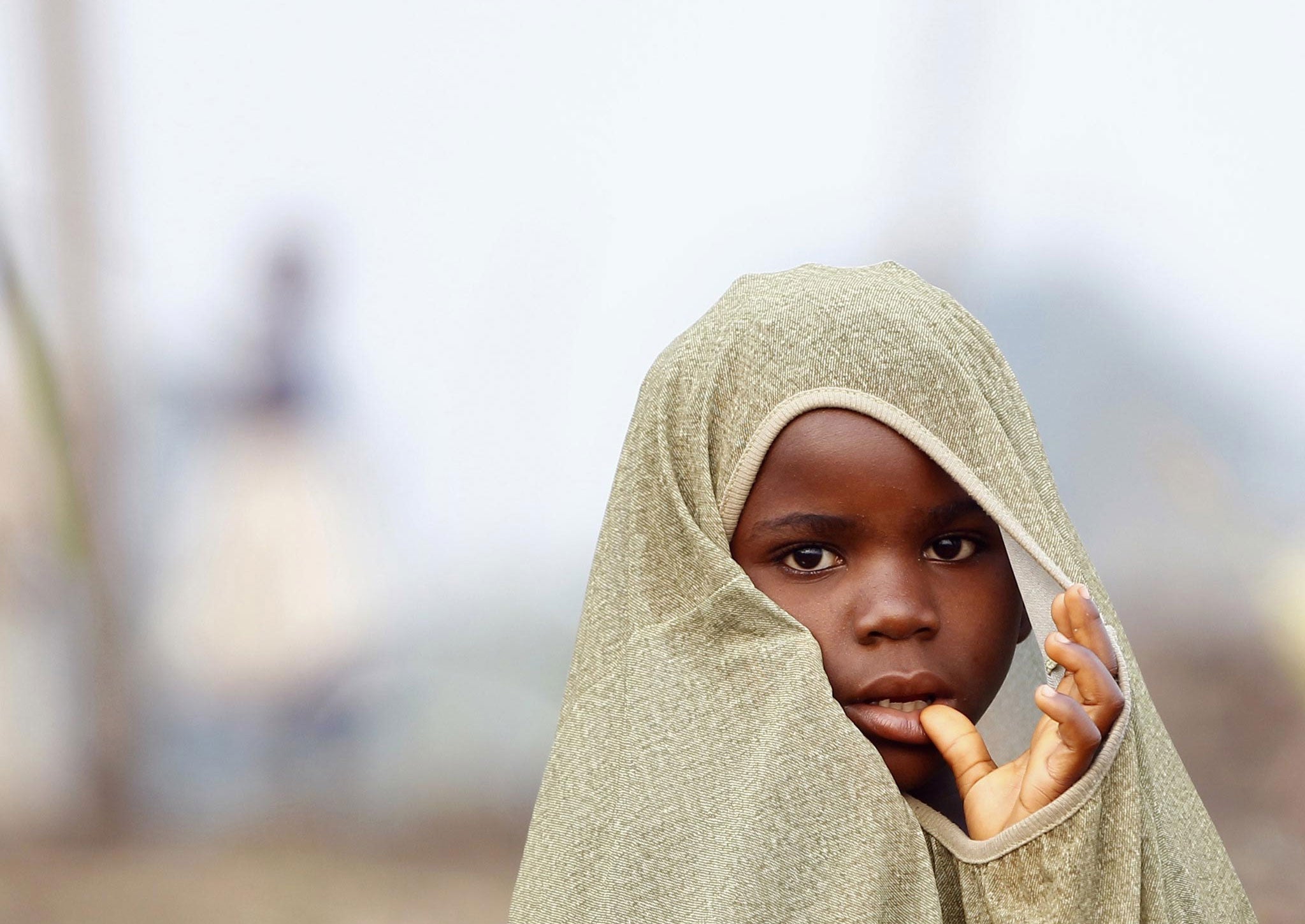Half the victims of rape in conflict zones are children
They target the child to terrorize the parent

Your support helps us to tell the story
From reproductive rights to climate change to Big Tech, The Independent is on the ground when the story is developing. Whether it's investigating the financials of Elon Musk's pro-Trump PAC or producing our latest documentary, 'The A Word', which shines a light on the American women fighting for reproductive rights, we know how important it is to parse out the facts from the messaging.
At such a critical moment in US history, we need reporters on the ground. Your donation allows us to keep sending journalists to speak to both sides of the story.
The Independent is trusted by Americans across the entire political spectrum. And unlike many other quality news outlets, we choose not to lock Americans out of our reporting and analysis with paywalls. We believe quality journalism should be available to everyone, paid for by those who can afford it.
Your support makes all the difference.Cases of rape against children, men and women in conflict areas run into the hundreds of millions each year. Far more than the numbers of people affected by cluster bombs or land mines. The London summit is the beginning of a recognition that rape and sexual violence in conflict often has a much bigger impact than the fighting itself.
The depth of damage done to individual rape victims also demands our attention. Sexual violence in conflict zones includes extreme physical violence, the use of sticks, bats, bottles, the cutting of genitals, and the sexual torture of victims who are left with horrific injuries. Many die as a result of these attacks. But survivors can also face a catastrophic rejection by their families and may be cast out from their communities. In some countries rape victims run the risk of being prosecuted themselves on charges of adultery.
In the first half of 2012, 74 per cent of sexual violence survivors treated at the HEAL hospital in Goma, Democratic Republic of Congo, were children. This is not an outlying statistic – it reflects wider findings that in conflict, half the victims of rape are children. A Syrian father told War Child: 'They target the children to put fear into the hearts of fathers'.
When a child runs away from a burning village, what happens to them next depends on who they meet in the forest. Danger comes from all sides. A shocking finding of recent research is that rape in conflict areas is committed at least as often by civilians as by fighters with weapons. Conflicts create fear and anger at the same time as removing the barriers which prevent people from acting out their desperation on children.
William Hague thinks that expanded efforts to prosecute those who commit rape will be a deterrent to others. I believe he is right. But I also know that there are ways to reduce rape in conflict in the short term. War Child trains volunteer committees to help communities protect their children. We establish child safe centres where children can talk about what is happening to them and access the help they need. We set up free telephone helplines so that children find the support they need to avoid or escape from rape and sexual violence. These are practical low cost measures which provide real time protection from rape and reduce the rates of sexual violence in populations living through conflict.
Peacekeeping troops have great potential to do more to protect children. They need more training and a proper mandate to address sexual violence. We need more data and research on how children are affected. And the humanitarian system needs to understand that getting children back into education is an important part of keeping them safe.
There are longer term arguments for supporting the London Summit on sexual violence in conflict. Communities who fight each other will one day need to live together in peace. Every atrocity committed in time of war makes the peace more difficult to sustain. Whilst bullets and bombs might kill individual people, rape and sexual violence destroys families and collapses communities. By reducing rape in conflict we increase the prospects for peace. And by supporting survivors of rape, both male and female, we support the creation of a stronger community which can deal with its past and build a shared vision for the future.
Rob Williams is CEO of War Child
Join our commenting forum
Join thought-provoking conversations, follow other Independent readers and see their replies
Comments